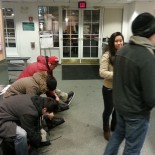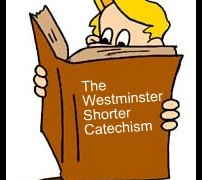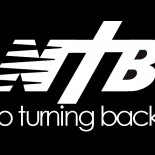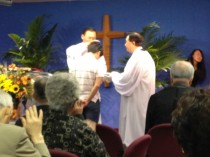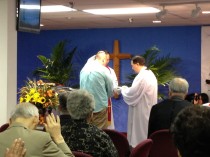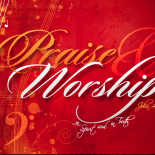Starting on Thursday January 10, 2013 our church will be launching a “Daniel Fast”. And so in order to avoid confusion and for instruction and spiritual nourishment, I thought it’d be great to take a look at what it is, where it comes from, and what it is NOT.
Where it came from.
The whole idea of the “Daniel Fast” comes from Daniel 1. The background of the story is that around 605BC, King Nebuchadnezzar of Babylon came and captured Judah (Dillard, R. & Longman, T., An Introduction to the Old Testament. Daniel., pp. 332-334). Daniel and his friends were a part of Babylon’s relocation program whereby the best and brightest of the Jewish population was relocated to Babylon and were trained to serve in the government (Dan 1:3-4). Furthermore, while these young people were being schooled in their Babylonian education system, they also were fed the king’s meal – the best in the land. Seems like a good deal, yes? Not really.
What it is.
Daniel resists Nebuchadnezzar’s offer of a fantastic meal plan (which most college students would easily go for) and instead opts for vegetables and water. What gives? There are many ideas and conjectures, the best of which is that Daniel & co. could not further defile themselves (having already been given pagan names to replace their God honoring names. See chart below) by eating the king’s food which would have been blessed by pagan priests in the name of a pagan god. However there is no biblical evidence of this.
|
Hebrew Name
|
Hebrew meaning
|
Babylonian Name
|
Babylonian meaning
|
|
Daniel
|
God is my judge
|
Belteshazzar
|
god protects the king’s life
|
|
Hananiah
|
God has favored
|
Shadrach
|
Command of Aku (Babylonian god)
|
|
Mishael
|
Who is like God?
|
Meshach
|
Who is like the moon god?
|
|
Azariah
|
Person the Lord has helped
|
Abednego
|
Servant of god Nebo
|
The first reason would have been that Daniel & co. were attempting to escape the king’s temptation to abandon God and follow all of Babylonian culture, including their gods (Calvin, John. Daniel). It is important to note that later in the book Daniel is assumed to have gone to a regular diet and that chapter 1’s special diet was for this specific purpose.
The second reason is that Daniel, by rejecting the king’s food and eating only vegetables, would have been eating food familiar to him from his homeland of Judea AND during this specific period of intense temptation and testing, he wanted to remind himself of his TRUE identity (in spite of his new Babylonian name) which is that he was a member of God’s people in exile. And so he wanted to eat like an exiled man (Calvin, John. Daniel).
A third reason is that Daniel shows that though the people of God are in the world, we are not of the world (Henry, Matthew. Daniel 1:8-16).
What it is NOT
There are many ways this lesson in Daniel 1 can be misunderstood or even wrongly taught. So here are some things that Daniel 1 does NOT teach:
1. A veggie & water diet is a path to special holiness. It is not. Veggies are good for you. You should eat more. They are however NOT effective for you to earn God’s love. Only Jesus can do that.
2. The Daniel Fast gets us a special favor with God. Or in other words, since we did this super holy thing, God is either obligated or supremely impressed and will grant us just one wish. It is not. God is not obligated to us for anything because He’s God and we’re not.
3. The Daniel Fast will ignite our lame Christian lives into a super holy fire forever. It will not. Only the Holy Spirit’s power combined with faith/obedience and prayer and meditation on the Bible will do that.
4. The Daniel Fast is a secret shortcut in the path to spiritual success/glory/maturity. It is not. As it was said by an Old Testament professor, “THERE IS NO SHORTCUT TO GLORY!” God doesn’t believe in shortcuts, hence the crosss.
Hope this helps.
Running this race with you.


